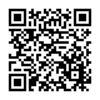There is a traditional Japanese calendar called Koyomi, in which days of seasonal changes such as twenty-four sekki are indicated. February 4th is known as Risshun and considered to be the first day of spring according to the koyomi calendar. The previous day, February 3rd is called Setsubun, whose literary meaning is 'seasonal division' (between winter and spring). On the day of Setsubun, there is a traditional custom of mame-maki (bean scattering). It is a ritual to purify the home by driving away oni (evil spirits) that bring misfortune and bad health with them.
New Year started with the tragic occurrences: the Noto Peninsula Earthquake Disaster and the collision accident involving two aircrafts at Haneda airport. However, we hope to drive all the evil spirits away and to bring much good luck in by throwing beans during Setsubun.
The Japanese Red Cross Society is soliciting donations for the 'Reiwa 6 Noto Peninsula Earthquake Disaster Relief Fund.'
https://www.jrc.or.jp/contribute/help/20240104/
Kawasaki City Branch of Japanese Red Cross is also accepting donations for the 'Reiwa 6 Noto Peninsula Earthquake Disaster Relief Fund'.
https://www.city.kawasaki.jp/350/page/0000157376.html
Reminder:
On Saturday, January 27th, at 13:30, We will hold 'Information session for enrolling a foreign child in elementary school'
For application, call: 044-435-7000, email: soudan39@kian.or.jp, Free of charge